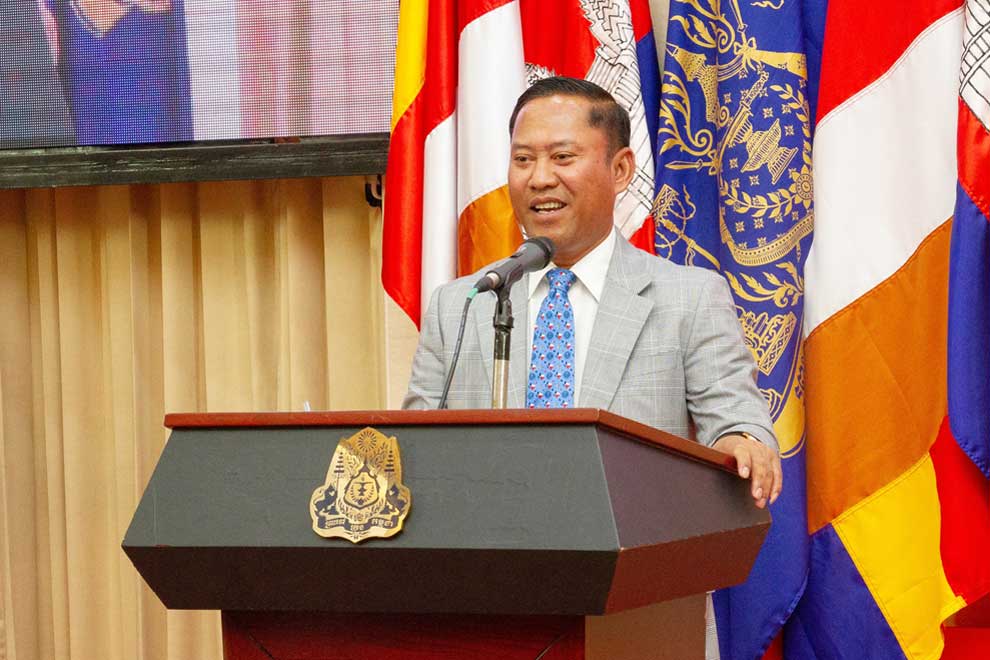
Kampong Speu provincial governor Vei Samnang speaks at a press conference on the progress and goals of his province, on February 9. GOVERNMENT SPOKESMAN UNIT
In the five-year period from 2018 to early 2023, more than 130,000 plots of land were registered for the people of Kampong Speu, with the provincial administration pledging its commitment to accelerating this work and finishing it in the near future.
Speaking at a February 9 press conference on the province’s achievements of the past five years, governor Vei Samnang said there were 131,659 plots registered and 82,503 title deeds distributed to residents.
He noted that 1,368 plots of state land have also been registered, of which 1,352 have had title deeds issued and another 16 plots are in the process of registering, which is scheduled to be completed soon,” he said.
As for economic land concessions (ELCs), he said 1,521 plots were registered, including 98 plots of state land. Three plots were registered for permanent leaseholder rights and 101 plots were issued with construction permits. There are 75 land development projects.
Samnang said there are currently 19 companies investing in ELCs, 10 of which have registered land and six have applied for registration. The province has issued licences to 10 firms already and set up border posts for six companies with a total investment area of more than 100,000ha, of which more than six million hectares were cleared with a total land area cultivated of nearly four million hectares.
According to Minister of Land Management, Urban Planning and Construction Chea Sophara, from the beginning of the programme’s implementation until November 2022 the authorities have issued 6,730,752 land titles to citizens nationwide, which is equivalent to 96.2 per cent of the total initial estimate of seven million plots.
Back in late December 2022, Prime Minister Hun Sen instructed the ministry to accelerate the registration of plots of land for people across the country to achieve 100 per cent completion of the task this year, without further delays.
Hun Sen that there were not many plots of land left to be registered, but the professional officials seemed to delay both the systematic and partial registration, so this work must move forward faster.
The premier also instructed all provincial governors to take a closer look at this work to resolve issues related to state land, community land and private land that has not been registered. He also said that speeding up the registration of plots of land throughout the country is necessary for people to be secure in their property and avoid any eventual problems or disputes.











